I appreciate that what underlies our realization about this civilization, with its ruinous appetite for destruction and exhaustion of the Earth’s resources, and the atrocious (and usually hidden from public view) violence and suffering it inflicts on the land and every creature on it, is a core of grief. We don’t want to see it, witness it. We hide in our homes and offices, our sanctuaries against truth. We bury ourselves in our work, our fantasies, our distractions, our escapes, our denial. We inure ourselves against the reality of what our culture, in its desperation to continue, has wrought, what it is doing, every day, and where this will inexorably lead. Somehow, intuitively, we know, and we’re trying to cope with this terrible unspoken knowledge, each in our own way.
Some would have us try to face this grief, accept it, telling us we should “listen to the sounds of the Earth crying“. That we should see for ourselves what our culture is doing. (Thanks to Carolyn Baker for these links.) My sense, though, is that those who are ready and willing to do this are already doing so. We each have to find our own best way of coping. Perhaps my search for ‘presence’, to become unattached to my ego and thoughts and reactive emotions, is my way, for now.
The last word this quarter goes to Roy Scranton, author of Learning to Die in the Anthropocene, writing in the NYT last week, in an essay called We’re Doomed. Now What?:
We stand today on a precipice of annihilation that Nietzsche could not have even imagined. There is little reason to hope that we’ll be able to slow down global warming before we pass a tipping point. We’re already one degree Celsius above preindustrial temperatures and there’s another half a degree baked in. The West Antarctic ice sheet is collapsing, Greenland is melting, permafrost across the world is liquefying, and methane has been detected leaking from sea floors and Siberian craters: it’s probably already too late to stop these feedbacks, which means it’s probably already too late to stop apocalyptic planetary warming. Meanwhile the world slides into hate-filled, bloody havoc, like the last act of a particularly ugly Shakespearean tragedy…
We were born on the eve of what may be the human world’s greatest catastrophe. None of us chose this, not deliberately. None of us can choose to avoid it either. Some of us will even live through it. What meaning we pass on to the future will depend on how well we remember those who have come before us, how wisely and how gently we’re able to shed the ruinous way of life that’s destroying us today, and how consciously we’re able to affirm our role as creators of our fated future.
Accepting the fatality of our situation isn’t nihilism, but rather the necessary first step in forging a new way of life. Between self-destruction and giving up, between willing nothingness and not willing, there is another choice: willing our fate. Conscious self-creation. We owe it to the generations whose futures we’ve burned and wasted to build a bridge, to be a bridge, to connect the diverse human traditions of meaning-making in our past to those survivors, children of the Anthropocene, who will build a new world among our ruins.
~~~~~
PREPARING FOR CIVILIZATION’S END
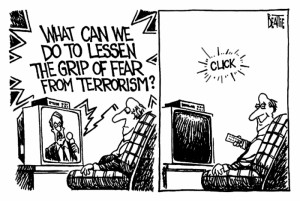
cartoon by Bruce Beattie in the Daytona Beach News-Journal (thanks to Eric Lilius for the link)
The Myth of Self-Reliance: Too many people believe (thanks largely to mainstream media and the “prepper” nonsense they propagate) that resilience and preparation is about becoming totally independent of other people, even people in one’s community. Toby Hemenway explains how we are all reliant on the industrial economy, and our eventual alternative when it collapses will be reliance on our communities, not “self-reliance”. Thanks to Del Solkinson for the link. (Also new from Toby, this speech about urban permaculture — thanks to Tree for the link.)
Economic collapse looms ever closer: Falling oil and commodity prices mean that Peak Oil will never happen, and that’s good news, right? Wrong. As Gail Tverberg explains, falling oil prices mean that we’ve entered a deflationary spiral because every means of trying to squeeze more money (i.e. create more debt) out of consumers is now exhausted, and falling spending power means falling demand and prices. That means more oil will be left in the ground, but that falling spending power means what oil is available will be even less affordable, which means Peak Oil (the exhaustion of affordable energy) will arrive even faster and harder. In short: “The world economy has been held together by increasing debt at ever-lower interest rates for many years. We are reaching limits on this process.” Chris Martenson adds further explanation of what chronic deflation means for the economy in the next few years.
Bacteria Evolve Resistance to the Last Effective Antibiotics: Reckless overuse and misuse of antibiotics has enabled bacteria to evolve resistance to the last available antibiotic products on the market, and these bacteria are rapidly spreading across the globe. The likelihood of global pandemics just rose dramatically. Thanks to John Robb and AD Mitchell for the link.
Drowning Megacities: Al Jazeera explains what is happening in coastal cities in the developing world where hundreds of millions cannot afford to move to higher land to escape the effects of climate change.
The “Sharing Economy” Becomes a Problem: As the ideas and terminology of the sharing economy have been increasingly misused, co-opted and misunderstood, what was a wonderful idea has become corrupted into a euphemism for unregulated disintermediation. What’s needed is to get back to the basic principle: giving without expectation of compensation: A Gift Economy. Meanwhile, a reporter tries to live for a month entirely in the “Sharing” and Gift Economies and describes what she learned. (Thanks to Larry Sheehy for the first link and Tree for the second and third).
Why Not Just Print More Money and Give It To Citizens?: The New Yorker reviews Adair Turner’s new book suggesting such a move could rebalance wealth disparity and solve a host of related social ills. Although the idea is inflationary, it is less so than the obscene tax cuts the wealthy have received in many countries in recent years. And while economic collapse is well underway and accelerating (despite government efforts to obfuscate it with doctored statistics), redistribution of wealth could dramatically reduce the inevitable social unrest as debts become increasingly un-repayable, credit freezes up and defaults skyrocket. Excerpt:
The best alternative [to the current economic crisis, economist Adair] Turner thinks, is his radical proposal—creating money and handing it out to entities that can spend it. It wouldn’t matter much whether the newly minted money was forwarded to households in the form of bank credits, or used to finance tax cuts, or spent on building new roads and bridges. The key point is that the government would be stimulating the economy without issuing any new debt.
~~~~~
LIVING BETTER
images: left: poster by Toolbox for Education & Social Action (more on how co-ops benefit our economy here); right: Marc Winn‘s version of the “sweet spot” circles diagram from my book, which someone has posted to wikipedia (I still like my simpler, less industrial-economy-bound version better). Thanks to Natalie Shell for the ikigai link.
Holding Space for Ourselves: The idea of “holding space” — creating a safe place where people can speak and reply candidly to each other, to say what is true for them without fear or risk — is now well-established. But what does it mean to “hold space” for yourself? “Give yourself permission to trust your own intuition. Give yourself only as much information as you can handle. Don’t let anyone take your power away. Keep your ego out of it. Make yourself feel safe enough to fail. Give guidance and help to yourself with humility and thoughtfulness. Create your own container for complex emotions, fears, trauma, etc. And allow yourself to make decisions that are different from what other people would make.” Thanks to Deanna Pumplin for the link.
The Five Choices: The Tree Sisters movement describes five choices for engaging fully in community, and presents a map for activists and a “shadow map” that chillingly depicts what holds so many of us back. Thanks to Nina Simons at Bioneers for the link.
The Value of Participative Art: The Guardian newspaper’s arts editor says the long-starved arts have turned the corner, and quotes yours truly in her year-end recap.
Gifting Your Services, and More: A Dutch group has established Sharing Vouchers, which are available and posted at local “third places” for gifting what you have a surplus of. And SF offers free clothes mending to those who can’t afford to pay for it. Thanks to Tree for the links.
Neighbourhood Youth Co-ops: Saskatoon is modelling a new way to engage young people in cities, much as 4-H used to do for rural kids. Thanks to Jessica Mitts for the link.
HDR Photography Goes Mainstream: Even many smart phones now use a new ‘HDR’ multiprocessor that makes mediocre shots into hyper-realistic ones (some say too hyper-realistic).
Mooji on Awakening: The engaging disciple of Ramana Maharshi says much the same thing as Eckhart Tolle and Adyashanti, but does it with a modesty and humour that other more recognized ‘enlightenment’ speakers often lack. Here’s my YouTube playlist of some of Mooji’s best answers to questions at his ‘satsangs’.
The Sun Interviews Adyashanti: A delightful interview from a while back reveals how Adya got started in the strange business of teaching ‘awakening’. Thanks to Ryan Rathje for the link.
~~~~~
POLITICS AND ECONOMICS AS USUAL

image source unknown (thanks to kayemmo for the link)
Polls Are Frequently Wrong, and Usually Dangerous: The incomparable Jill Lepore explains why opinion polls are bad for democracy.
The Price-Gouging of Big Pharma: “It’s fair enough to excoriate Martin Shkreli for greed and indifference. The real problem, however, is not the man but the drug profiteering system that has let him thrive.”
Trudeau’s First Days: Good news about Canada’s new not-Harper Prime Minister: He’s unmuzzled Canada’s scientists. He’s promising significant election reform. But he’s still not committed to cancelling Canada’s involvement in the TPP, or cancelling the egregious and paranoid Bill C-51.
The 158 Families Funding the 2016 US Election: If you want to be US president, you’d better be in tight with some of them.
Is Michigan the Harbinger of US Economic Collapse?: Austerity and privatization now threaten public health, education and safety in Michigan, driven by the state’s ideological extremists. Thanks to Sam Rose for the link.
The Secret US Prisons No One Talks About: Beyond Guantanamo, the US maintains domestic secret prisons for political prisoners that rival the similar Russian Gulags. Bravo to Will Potter for having the courage to talk about them, to a TED audience no less.
Saudi Arabia: an ISIL That Has Made It: Thanks to our dependence on cheap oil, industrialized nations continue to support a regime whose ideology is every bit as extreme as the one they have pledged to destroy.
~~~~~
FUN AND INSPIRATION
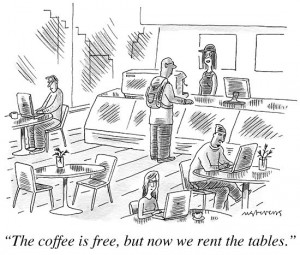
cartoon by Mick Stevens from the New Yorker
It’s Going to be OK: Read this cartoon and guess who its real-life hero is (you’ll learn at the end). We are all passengers pitching downward into the night. Thanks to Flemming Funch for the link.
The Sad Ghost of “Secondary Abstinence”: A moving and provocative NYT story explores why despite the fact our bodies are built for frequent sexual pleasure, so many of us are abstaining, seemingly involuntarily, or perhaps “sex is abstaining from us“.
The Rise and Fall of the American Chestnut: Biologist Peter Bane weaves a fascinating story of how the dominant North American tree species after the last ice age suddenly vanished. Can you guess what the real reason (beyond the fungus that was the immediate cause) for this sudden near-extinction was? Thanks to Eric Lilius for the link.
No Limits: Yet another scientific research study suggests that there is/was no beginning or end to our universe, or of time. Time to blow up the Big Bang once and for all. Thanks to Tia Carr for the link.
The Strange Politics of Haiti: The current president of Haiti is a former Zouk singer, and at the recent anniversary celebrations he used his power to upstage the performers, Haitian Zouk superstar duo T-Vice, and instead insisted on performing some of his own songs. Like every recent president, Mr Martelly is accused of corruption, but seemingly less so than the sad parade of previous presidents of this broken and desolated country.
Was David Hume the First Western Buddhist Philosopher: A researcher tracks down the reasons Hume’s philosophy is so resonant with Buddhist thought. Thanks to Tree for the link.
~~~~~
THOUGHTS FOR THE QUARTER
HDR image by the multi-talented AnnMarie and Michael Parson-McNamara
Home Maintenance by PS Pirro — ruminations on looking after the small things.
Thirteen Ways of Looking at a Blackbird by Wallace Stevens — the blackbird is involved in what we know.
From The Velveteen Rabbit by Margery Williams (thanks to Venessa Miemis for the link):
He said, “You become. It takes a long time… Generally, by the time you are Real, most of your hair has been loved off, and your eyes drop and you get loose in the joints and very shabby. But those things don’t matter at all, because once you are Real you can’t be ugly, except to people who don’t understand.”
From an unknown source (posting on a cork board) on patriarchy: “Carry yourself with the confidence of a mediocre white man”.
From Chris Savage (LOLGOP on Twitter; thanks to Beth Patterson for the link): “If you think fertilized eggs are people but refugee kids aren’t, you’re going to have to stop pretending your concerns are religious.”
From Dahlia Lithwick in Slate (in 2013):
We can’t stop the tsunami of people who want to openly carry guns in certain jurisdictions. We can’t pass legislation that would limit improper access to guns, even when 90 percent of the public supports it. And we can do nothing to truly ensure that kids aren’t living in a culture of daily deaths from guns. So in the absence of a public policy solution, or any kind of collective will to find a public policy solution, we just make a decision to treat armed killers in schools as we previously treated fires and tornadoes: as acts of God instead of failures of legislative and moral courage. There will be more and more shootings near schools and more and more lockdowns.
And so this is what we have tacitly agreed to do now: We ask our kids to pile themselves silently into their classroom closets, and we tell them this is what freedom looks like.

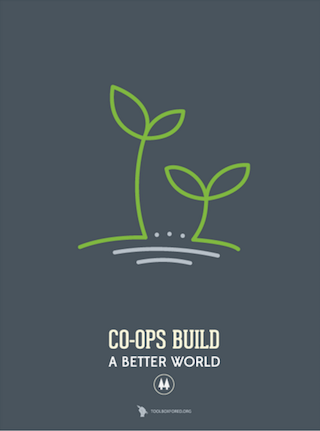
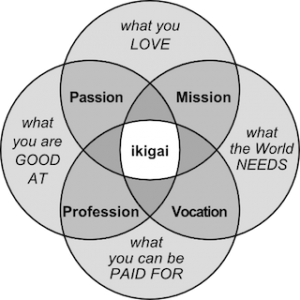
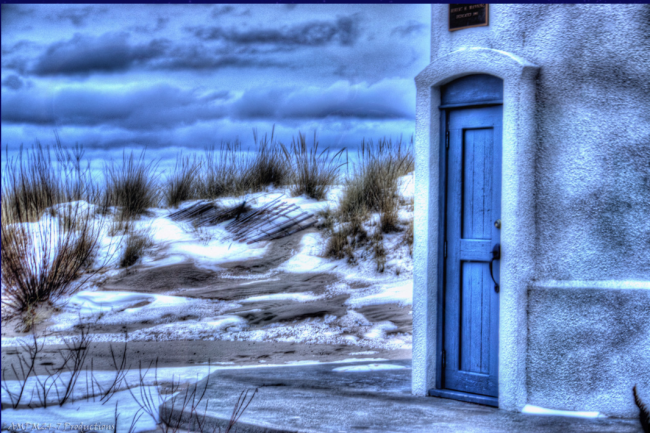




Pingback: “We Stand Today On A Precipice Of Annihilation” | Not Something Else
Doom around every corner bore me … while you are busy fretting about the 2727 ways we’ll die tomorrow, I’ll be living in the present, and trying to turn things around…